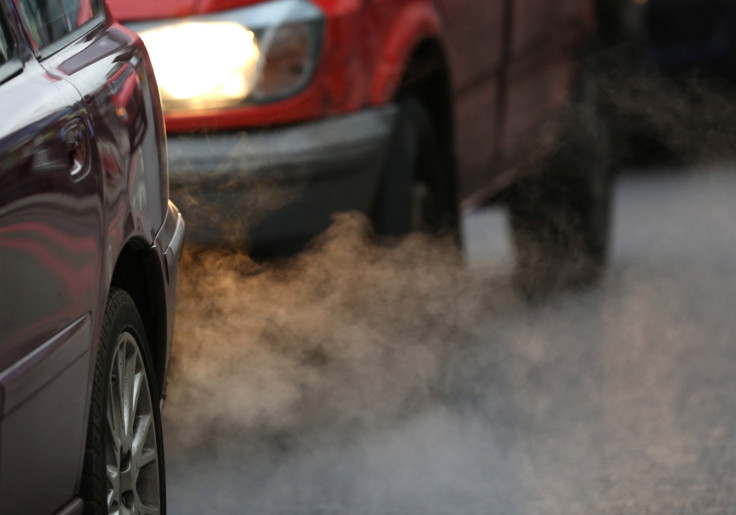The UK's dirty air has clear health impacts – Michael Gove must do more
Andrea Lee, a healthy air campaigner for Client Earth, writes for IBTimes UK.

Lobbyists have accused healthy air campaigners in recent days of using "questionable" health statistics regarding air pollution. Faced with a ban on all diesel and petrol vehicles by 2040 under government proposals, Fair Fuel UK have called for "real numbers and real science".
ClientEarth, who fight for robust government action to clean up the UK's dirty and illegally polluted air, can set the record straight. The health impacts of air pollution are clear.
Doctors at the Royal College of Physicians and Royal College of Paediatrics and Child Health published a report last year that outlined how air pollution affects us all, from the time that we are in the womb through to old age.
They estimated that the health impacts of air pollution causes the equivalent of 40,000 early deaths annually across the UK. This is a complex analysis by health experts that cannot be replicated on the back of an envelope, so anyone claiming that it is just a matter of a few hours taken off people's lives should be more responsible with what they say.
The report outlines how air pollution can trigger heart and asthma attacks and increases the risk of people ending up in hospital or dying from these. How it's linked to premature births and can cause children to grow up with smaller lungs, leading to lifelong health problems. And how a growing body of evidence is highlighting how air pollution not only affects our physical health, but could also be damaging our brains and mental processes.
That's why publications like IBTimes UK regularly report the dangers of pollution. Because it's seriously endangering the health of all of us – even those who have vested interests in protecting the motor and haulage industries.
Road transport is the main source of illegal and harmful levels of air pollution in our towns and cities. This is not just because of the emissions it produces but also because it does so in the very arteries of our urban areas – the road network. This is how people are exposed to the problem on a daily basis.
The government's own analysis for its air quality plans shows that where legal limits are broken in the UK, road transport is responsible for 80% of the pollution. Within that category diesel vehicles are responsible for 90% of NOx emissions that cause the problem. Breaking this down further shows that diesel cars are responsible for 35% of these emissions, diesel vans 22%, HGVs 18%, buses 16% and taxis 2%.
In Greater London, there's a similar pattern. According to the Greater London Authority road transport is responsible for 50% of NOx emissions overall with domestic and commercial boilers contributing 18% of the emissions. Diesel cars are again the biggest source of road transport emissions, responsible for 24% of road transport emissions or 12% of the overall total emissions.
That is why we need ambitious policies to protect people's health. We need a national network of Clean Air Zones that take the dirtiest vehicles off the most polluted parts of towns and cities. The Government's own evidence show this is the most effective measure for tackling illegal levels of pollution.
Diesel drivers should not be vilified. Motorists have bought their cars in good faith and they have been let down by the car manufacturers and the government. But the truth is that many of those cars are causing harm to the health of drivers, as well as others around them.
That's why we need a set of measures to help people to switch to cleaner forms of transport such as a scrappage scheme, which was absent from the government's plans. All diesel vehicles – not just cars – are an issue. But the dirtiest cars are a big part of the problem and this needs to be acknowledged in any plan which is going to be effective in tackling pollution.
Unfortunately, Michael Gove fell at the first hurdle last week. Instead of drawing up and introducing policies to clean up our dirty air and protect people's health, he delivered a shabby rewrite of the previous draft plans, both underwhelming and lacking in urgency.
Those leading Fair Fuel should be campaigning for policies based on an analysis of the situation that would clean up our air and protect the health of all of us, including motorists, rather than ignoring the evidence.
Andrea Lee is a healthy air campaigner for ClientEarth.
© Copyright IBTimes 2025. All rights reserved.






















